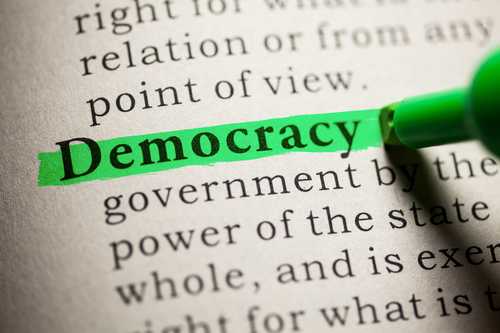Last spring, I asked students in my Web communications class to post a blog in response to two articles: ‘The Selling of a President,’ by Joe McGinniss, from Parade magazine, and ‘Coakley v Brown: The Social Media Divide May Decide Election,’ from the Huffington Post. Both had been written prior to big elections, the former months before the 2008 presidential election, the latter just days before Scott Brown rocketed to the Senate in a stunning victory that, even now, haunts the liberal Massachusetts electorate.
Based on previous blogs, I anticipated a lukewarm response. My students’ writing, while consistently thoughtful, showed little emotional investment. Now, as I read the entries, I saw-eureka!-engagement. Even passion! Many brought the subject home. They blogged about their frustration with politics, the ways in which social media nudged them, encouraged them to engage in the political world.
Other than Barack Obama, for whom they’d voted in droves, I’d believed young people to be indifferent to politics. Ignorantly, I’d chalked up their overwhelming support of Obama to youthful naivete, fanlike devotion to a young, handsome, electrifying candidate. That so many young people had voted was, surely, the result of a mob mentality, the young swept to action by a tsunami-like Internet marketing campaign.
Turns out, while young people do, in fact, turn to Facebook for news and information, ultimately neither their network affiliations nor mob mentality motivate political action. Nor do the young necessarily vote, as we old fogies too often do, to advance naked self-interest. No, for the young, it’s all about the respect.
My students’ blogs are, admittedly, an anecdotal sampling. But they’re telling, I think. And we can learn from them. A candidate who speaks specifically to them, a candidate who listens-takes them seriously-earns their loyalty. By addressing young adults through a media they understood and claimed as their own, Barack Obama, and a year later, a Republican, Scott Brown, told young people you matter. I care.
Not so different from the way the rest of us-parents, teachers, coaches, mentors-ought to behave.



I think this is interesting. As a young person (20 years old), I know that being taken seriously is a big deal. Most just take me as immature, naive, and that I don't know anything about anything. Teachers are especially guilty of this and then complain when we don't listen or care.
Ah, but I'm probably preaching to the choir. Sorry about that! It all boils down to I completely agree with this post.
I completely agree, Elisa. Far too many of older people see teens and young adults exactly as you describe. If we opened our minds, and took a few minutes to listen, we'd realize, not only that young people are intuitive and smart–but you can teach us a lot!
I really appreciate your response. Thanks so much for visiting!
Terri
Terri.
In my personal Facebook newsfeed, I found one of my friends had shared this amazing video. Since you lead a Web Communications class, and since the topic relates to your book, I thought you might enjoy it.
Hi Dax –
Thank you so much for sending the link! I'm teaching a class next year called "Friendship in the Digital Age" – this is such an applicable video. I also write about families and teens, so the message in the video has double meaning for me.
Thank you again! I really appreciate your kindness.
All the best,
Terri
Ah – Newbie author! Thank you, Dax! :) Terrific website.
It's great that you had such an amazing response! I think that kids are heard now more than ever, due to social media. Sometimes I think they might some day regret what they put out there for everyone to see, but there's no doubt they ARE being heard, and that yes, they absolutely MATTER! Great post, thanks.
Thank you so much, Julie! I'm with you about taking care with what we – all of us – post. It's out there and it can't be retrieved. You're absolutely right: younger people in particular don't realize the effect this can have later. I recently read that, before making some admissions decisions, colleges are now checking FB pages. Scary thought! I also agree that, to some extent, they're being heard. I do wonder, though, whether we're hearing them or they're just talking with each other. Thank you so much for your thoughtful response!
How true that us "old folks" can learn a few things from the young.I love that you've opened up and acknowledged the thoughts of our kids. They need to be heard as well.They not only have important things to say, but they will have more relevant, useful ideas to contribute if they feel like they are being seen and heard. This will only lead to a better future when we are no longer in charge and they are. CHEERS to you for your kind words! *clink*
I love to talk to teens and twenty-somethings. I am heartened to find that many of them are more community-minded than the older generations are. It gives me hope for the future to see that we may have a generation that will finally consider the common good instead of just shouting "What's in it for me?"